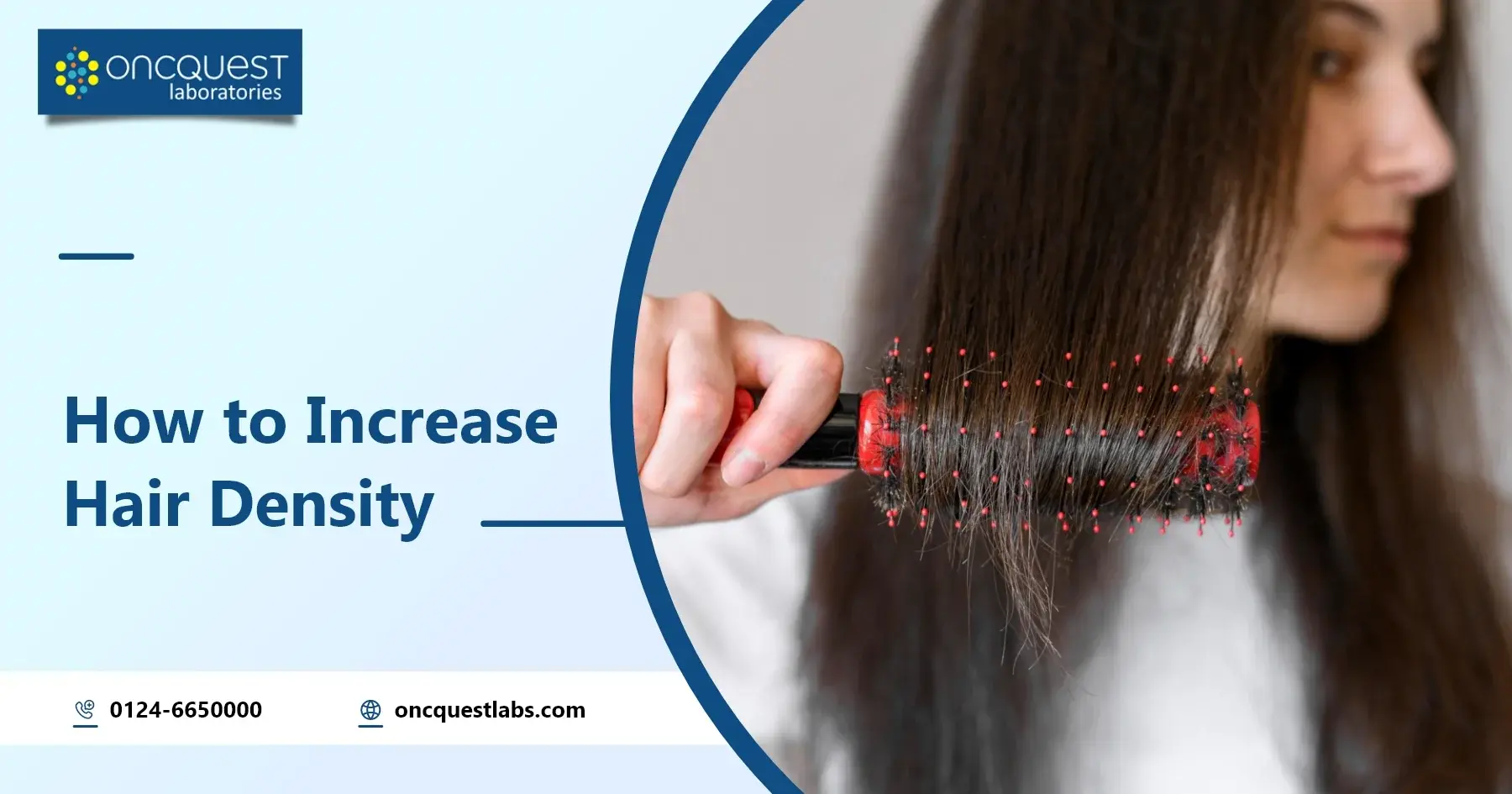Welcome to our blog, which is devoted to giving you healthier, denser hair! While many of us aspire to have thick, voluminous hair, hair density can be influenced by a variety of factors, including genetics, nutrition, and lifestyle. You’ve come to the perfect spot if you’re seeking for doable advice on how to increase the thickness and volume of your hair.
We’ll go over a variety of simple and practical methods in this article that you can use on a regular basis to naturally boost hair density. We will discuss many approaches to assist you in reaching your hair objectives, ranging from little adjustments to your food and hair care regimen to investigating herbal cures and treatments.
Contents
What is Hair Density?
Hair density is the quantity of hair growing from a single unit of skin, whereas follicle density is the total number of hairs per square centimeter of the scalp. Follicle density is frequently measured from the rear of the scalp with a small parting for accuracy.
It is possible to rapidly ascertain the density of hair covering the scalp. Higher densities are typically connected with better growth and more coverage. Hair density is divided into two groups: low and high. Whereas low density indicates thin hair with a visible scalp, high density indicates thick hair with a less evident scalp. Since each type of hair has advantages and disadvantages, it is imperative to understand your hair density for proper hair care.
Why is hair density important?
An average person loses between 70 and 100 hair strands per day, which can lead to low hair density. Hair appears scant when more hair falls out than comes back.
The industry offers a variety of treatments to increase hair density. Selecting the appropriate one for your hair type is crucial. There are numerous hair loss cures and treatments available that can greatly increase hair density.
Causes of Low Hair Density
Many discover that their present regimen for hair care isn’t addressing their issues, which produces unsatisfactory outcomes. It’s critical to evaluate your regimen in light of the several elements that may be impacting the health of your hair. Among them are:
1. The thickness and density of your hair can be greatly influenced by your inherited characteristics.
2. Changes in hormone levels during adolescence, pregnancy, or menopause may impact the growth and density of hair.
3. Having too much stress can cause general health issues with hair as well as hair loss.
4. Nutritional deficits may have an effect on hair development and density.
5. Excessive style or the use of harsh chemicals might weaken your hair.
6. Hormonal changes that occur during menopause and pregnancy may impact hair density.
7. Long-term illnesses or medical procedures may have an effect on hair density and condition.
8. Prolonged heat exposure can harm hair fibers and lower overall hair quality.
9. Excessive use of heat styling equipment or coloring products: Using chemicals or heat styling tools too much might weaken hair.
10. A person’s sleep patterns may have an impact on their general health, which may include their hair.
11. The health of your hair may be impacted by exposure to extreme weather or seasonal variations.
How to measure hair density?
An individual has roughly 2200 hair strands per square inch on average. With the assistance of trichologists or dermatologists, count each individual hair strand in a 1-by-1-inch region of your scalp to determine your hair density. This method yields the most accurate results.
Measuring the circumference of your hair after putting it into a ponytail is an easier technique to measure hair density at home. Your hair has low density if the circumference of the ponytail is less than 2 inches. You have medium density hair if it measures two to three inches, and high density hair if it is four inches or more. You may quickly determine the density level of your hair with this method without consulting a specialist.
How to improve hair density?
1. Consume a healthy, balanced diet.
Your diet has a big impact on the condition and density of your hair. Hair thinning or loss may result from a poor diet. Since keratin is the primary protein that makes up hair, up the quantity of meals high in protein and the amount of vitamins B3, C, and E in your diet to avoid deficiencies that could impact the density of your hair. Among these foods are eggs, spinach, and carrots.
2. Control your tension
Stress has the power to alter hair density and cause hair loss. Discover how to maintain your composure and relaxation with everyday stress management, exercise, regular sleep, and meditation. Both fostering hair development and beautiful, healthy hair are aided by a tranquil mentality.
3. Gently massage your scalp and comb.
A light head massage can help to increase blood flow, fortify hair follicles, and increase hair density. Frequent brushing promotes hair development by improving blood flow to the scalp, distributing natural oils, and shielding hair from harm.
4. Make use of the right hair care supplies.
Because hair density and hair fall are correlated, utilize shampoos and conditioners that will fortify and volumize your hair. Hair density may be preserved and healthy hair development can be encouraged by using the proper products and following a regular hair care regimen.
Frequently asked questions
Q1: Is it possible to increase density of hair?
A1: The quantity of hair follicles in your body cannot be altered. Patchy areas of hair development may be covered by hair transpl





